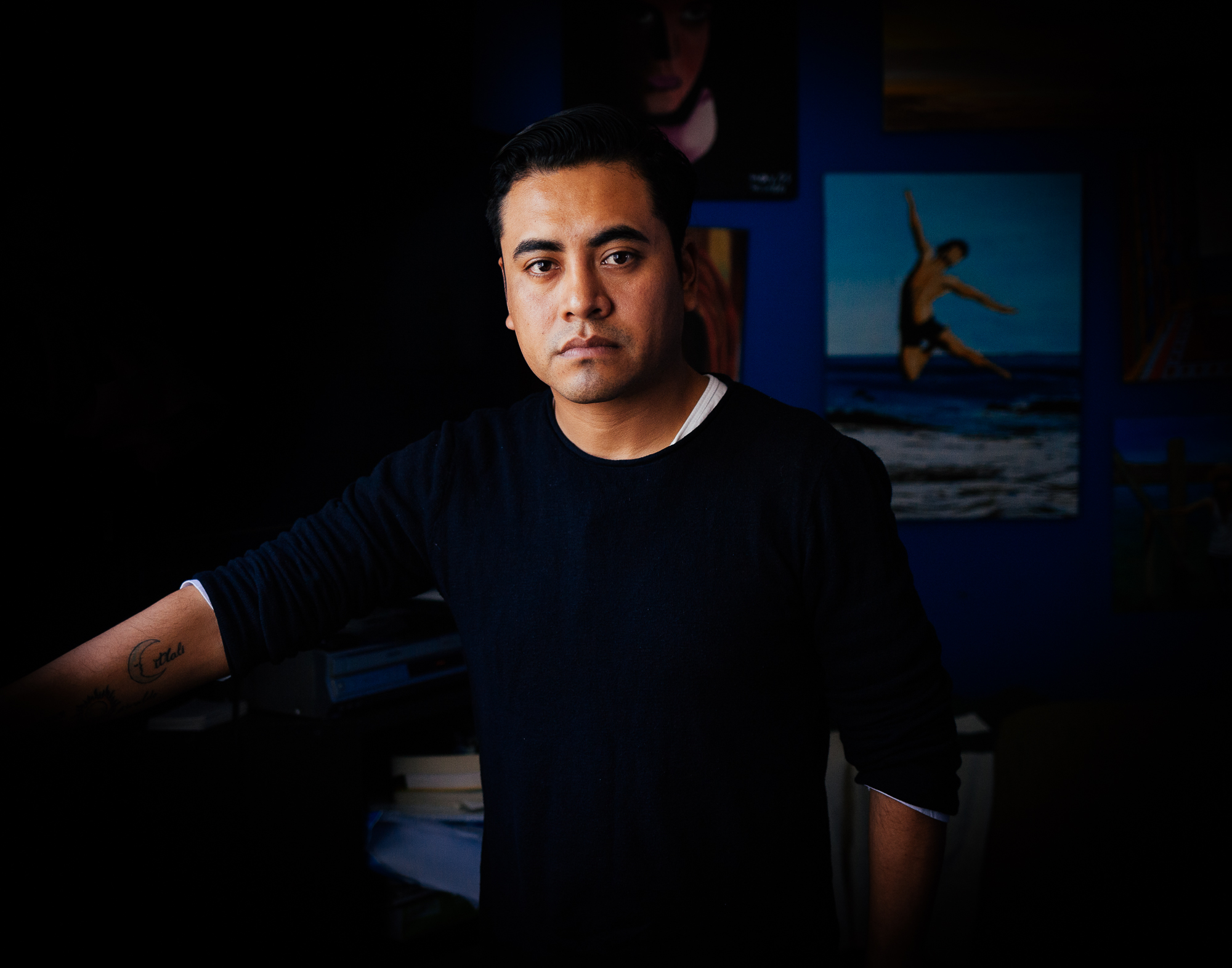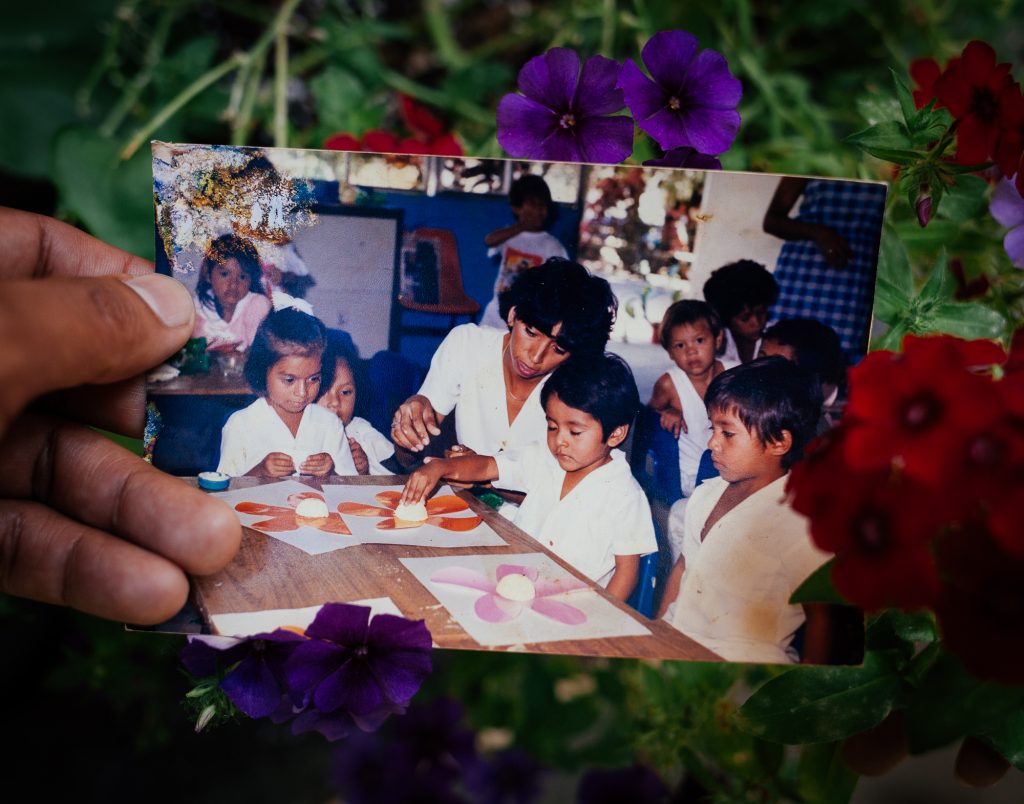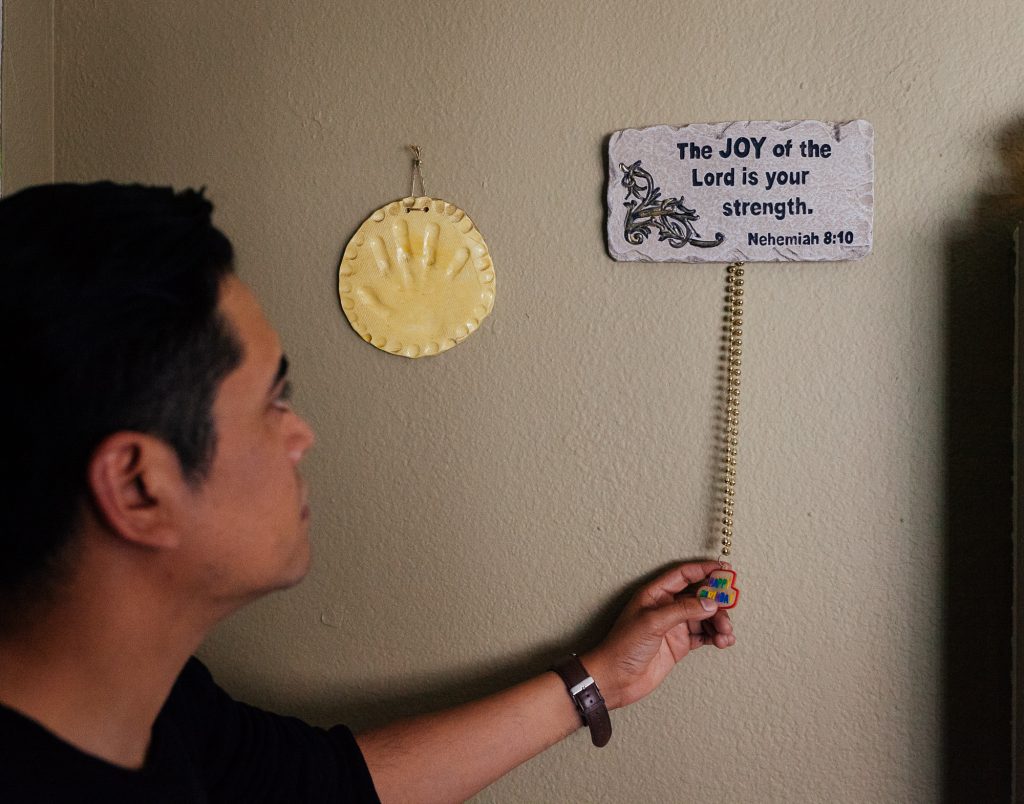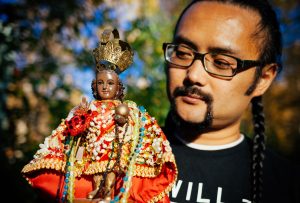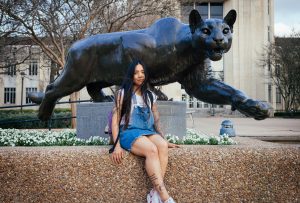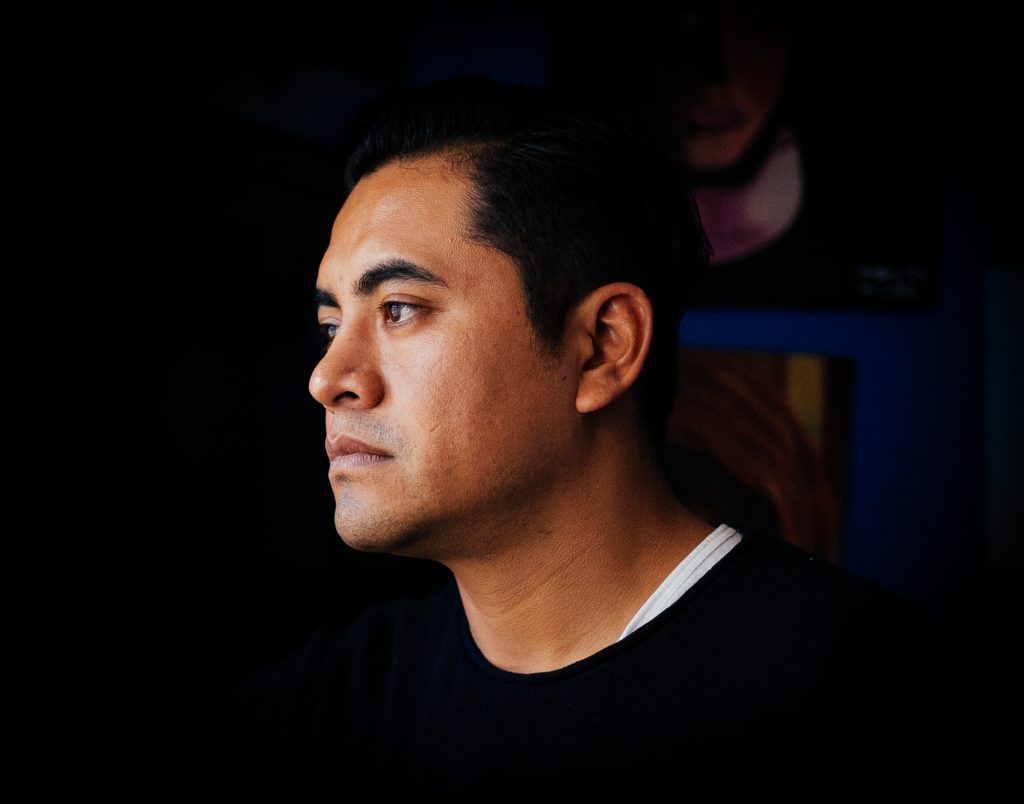
Acapulco
“When I tell people I’m from Acapulco, people are like ‘Oh my God, what are you doing here?’ I am not from the part of Acapulco that you see in the movies. I am from the segregated area where all the poor people live and go in to work for the tourists every day.”
One of the fondest memories Armando has of Acapulco is being out in the street playing football with the other kids. Although he had no shoes, he felt free.
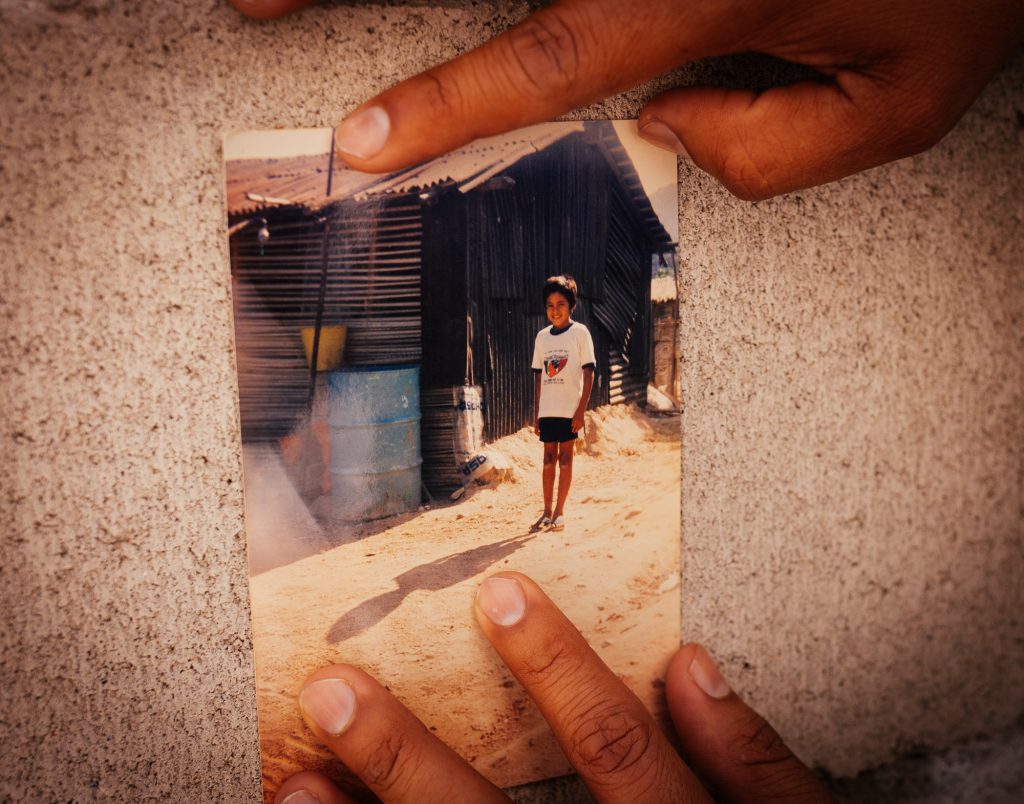
Childhood
Armando’s mother and father divorced when he was four, and his father left. Armando was raised by a single mother who worked many different jobs, usually as a waitress or a cook. While she was working, Armando would live with neighbors, uncles, or with his grandma. He had a conservative Catholic upbringing. He remembers being six years old and dressing like a priest for a performance [see photo below].
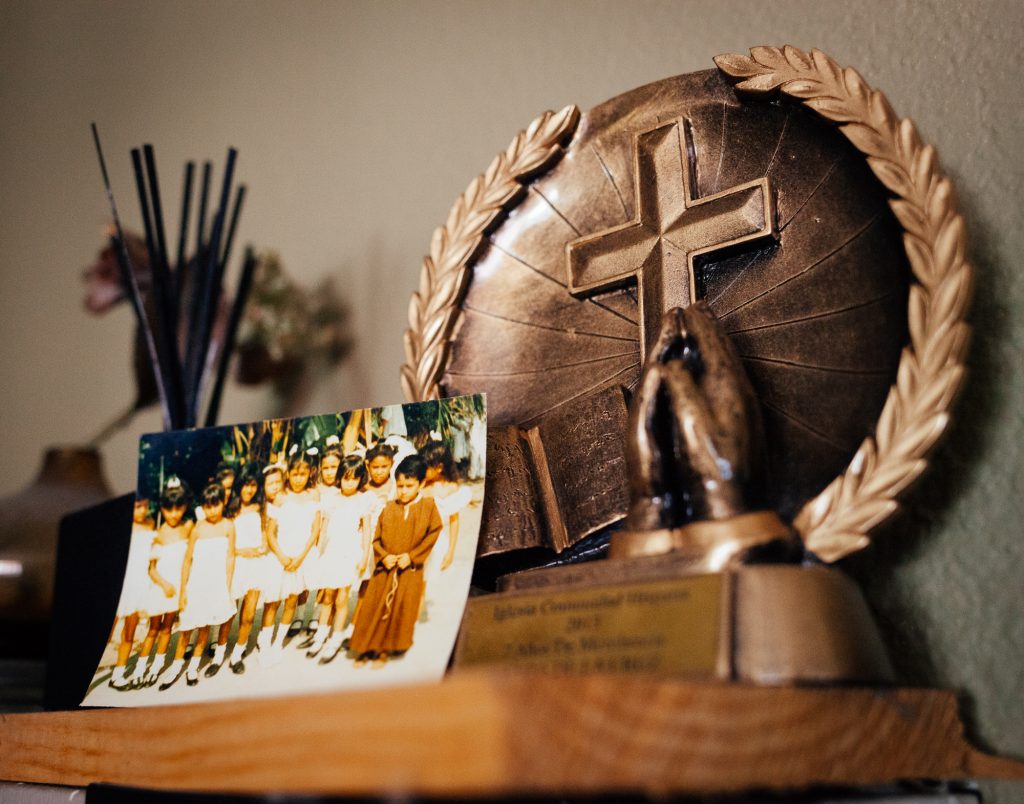
When Armando was twelve, his mother met his step-father. She stopped working and had his little brother. They were still living in poverty, but their life improved significantly.
Discrimination
It became apparent to Armando early on that the school system in Mexico discriminated against poor people. He remembers how the teachers wanted the kids to wear black shoes for class and white shoes for physical education. His family didn’t have money for either color of shoes.
“My mom said, ‘we are going to buy you the shoes, but we are not going to eat.’ That’s why all my family members, cousins, friends, uncles, stopped going to school. We normalize that. It is normal to quit school when you are 10, 11, 12, 13, and then get a job.”
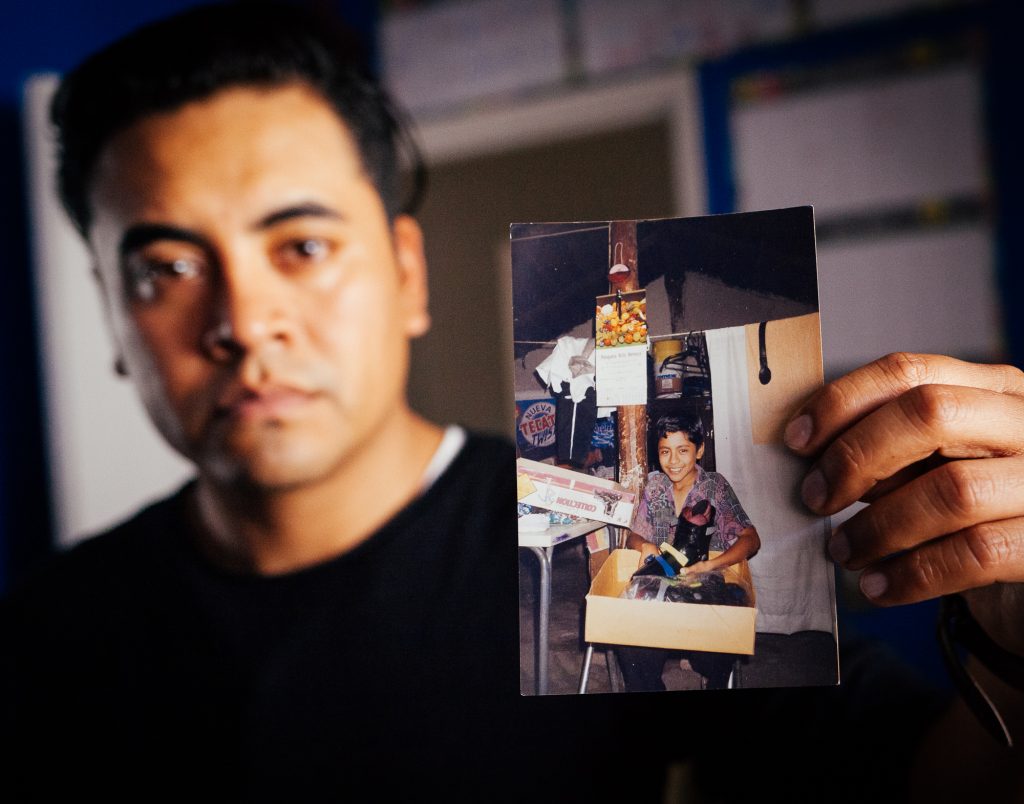
Film
When Armando was seven, his mom managed to rent a small room, and the first significant new item she bought was a black and white television. Armando remembers getting hooked on films like Casablanca and Gone with the Wind. When he was nine, Armando went to a music festival at the beach where the presenters were all soap opera stars. For the first time, Armando realized how white all of these stars were – even though they portrayed poor people like himself on television. At 12, Armando wanted to see the Lion King so severely that he snuck out of the house and went to the movies by himself. By 14, he had his first job at Walmart – packing people’s groceries into their cars for tips – and while there, stealing movie magazines from the store.
Pretty People
“In my mind, I thought all celebrities were like me, but here I saw that they were blond, blue-eyed, light-skinned people. I was in shock. I couldn’t believe that all the actors I admired on soap operas were white. My cousins were asking for autographs. Then I understood that artists and celebrities are white people – they are pretty people. We are brown and not going to be on TV – we are ugly people.”(audio below)
Armando grew up in a culture where people asked what shade of skin a newborn had. If you married someone with light skin, there was a common expression – “mejorar la raza” (improve the race). Because of this, he never would have dreamed of working in film, although it was his passion. He believed that careers in the arts were only for wealthy people or white people. If he had told someone his dream was to be a filmmaker, they would have thought he was joking.
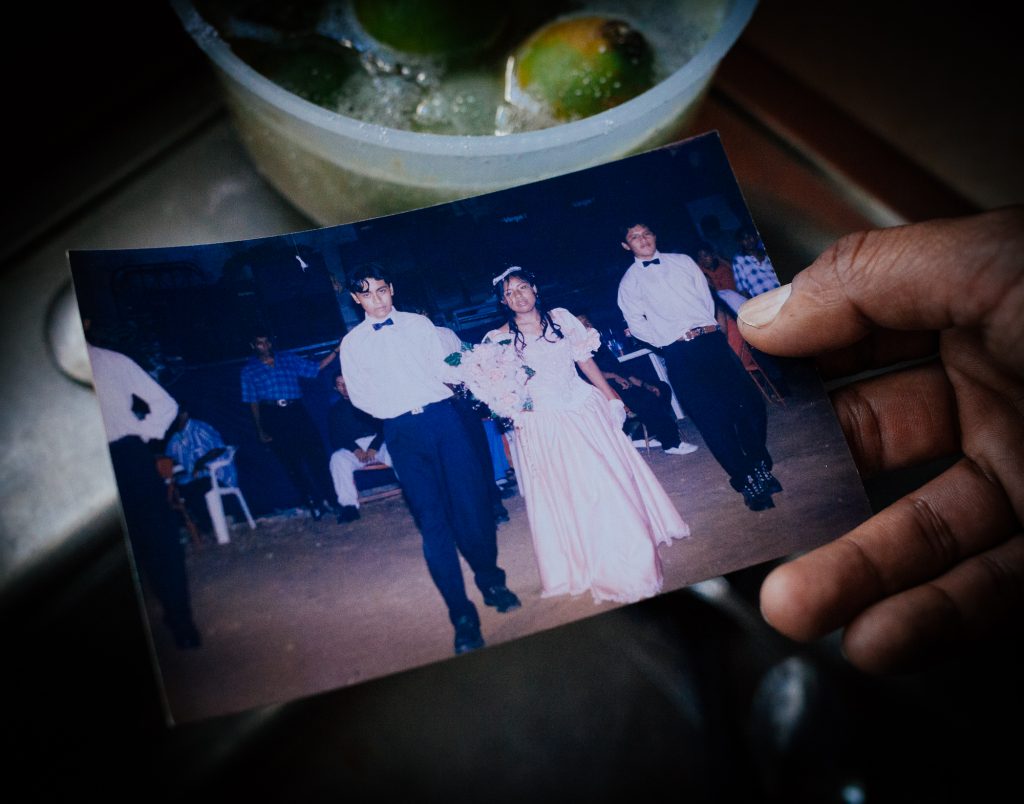
The Other Side
Armando frequently heard talk about going to “the other side”. It became apparent when someone went to the US. Shortly afterward, their family circumstances would improve – better food, clothes, and perhaps an extension on their house.
One day Armando’s stepfather fell sick, and they had to sell their television and VHS player to pay for a doctor and medicine. As soon as he recovered, his stepfather started planning how he would go to “the other side”. The biggest challenge was always finding someone to sponsor you – meaning someone living in the USA who would loan you the money to pay a “coyote” (the person who helps people cross the border in exchange for money) to help you cross the border. His stepfather could have worked for a decade and still not have enough money, but luckily he found someone to loan him the money. He came to the USA in 1998, and while working as a painter, he made enough money to help Armando’s mom and his two siblings cross.
“There’s a lot of pain in me against my country. My mom says, ‘I was crossing the border walking at night with my three-year-old son, my six-month-old daughter, and the only thing I was thinking was if one of my children died here I’m staying here.’ How can we accept this kind of thinking and normalize it?” (audio below)
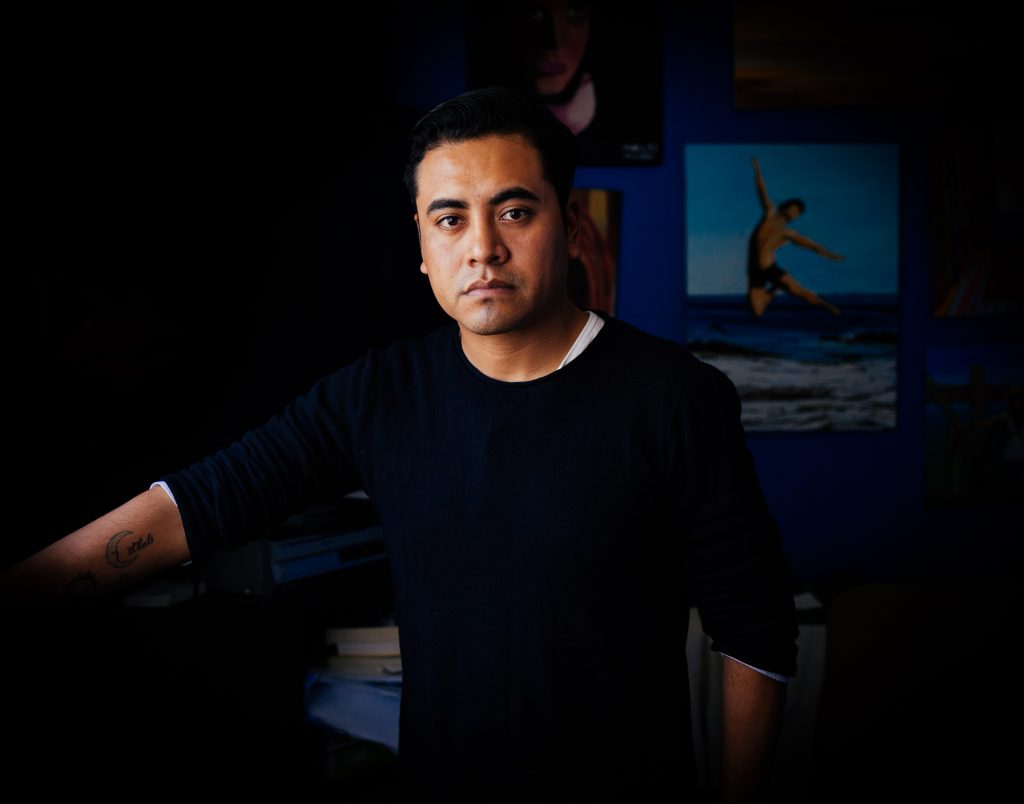
Crossing
At first, Armando didn’t want to go to the USA, since he was living with an aunt, receiving money from his parents in America, and going to school. He quickly realized, though, that the money he was receiving from the USA wasn’t going to be sufficient for him to continue his life in Mexico. Armando told his parents he wanted to cross. They found their son a coyote who Armando met near the border in Sonora, Mexico.
“I was 18 and naive and thought the USA would have their doors open for me. When I was trying to cross, I felt like my innocence was lost. I saw Mexican police take immigrants’ belongings and assault them. I saw indigenous women from Guatemala and Honduras getting raped so they could get a pass. Women with condoms because in their minds, they already knew what was going to happen to them, and they didn’t want to get pregnant.”
Armando remembers sitting on a Mexican freeway near the border and these big trucks driving by throwing empty beer bottles and trash at them, yelling “adios illegals.”
“That moment for me was defining. I don’t ever want to come back to this country. I was happy to leave.” (audio below)
It took many attempts over three weeks to cross the border before Armando was successful. One day the coyote woke him up at six in the morning, warning him that they would be walking all day.
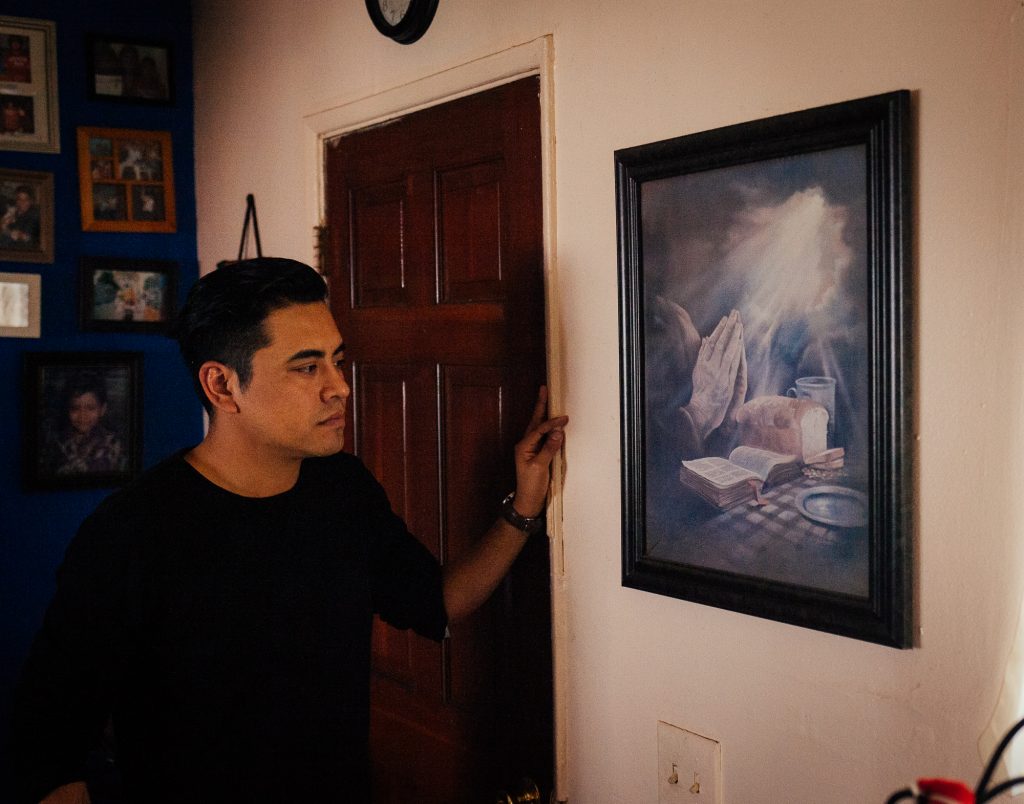
Risking Everything
“I started seeing clothes, backpacks, and bottles of water in the desert. I was picking up the photographs and turned one around. Women were writing to their husbands, ‘don’t forget about us,’ and ‘I hope God is with you.’ I couldn’t believe this was going on. People risk everything, and some of these families will never see their family members again. I know that I am blessed that we made it.”(audio below)
Next, Armando tried to cross with the coyote in a truck, but it broke down in the desert, in the middle of the night. He remembers being so cold he couldn’t sleep, and then there was a point where it wasn’t cold anymore.
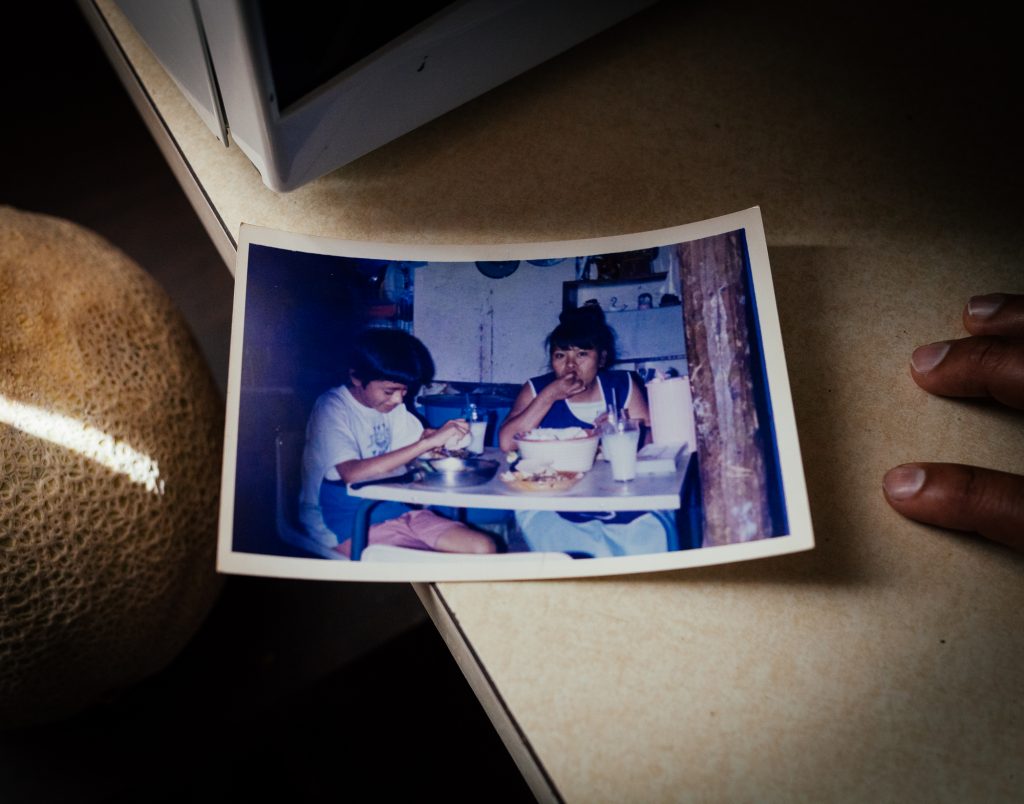
“The coyote touched me and said I was hard like ice. He got scared, and he started throwing all the clothes on top of me, and I couldn’t move. I told him, ‘if something happens to me tell my mom.’ That’s the only time in my whole life where I felt like I was going to die. When I started seeing the first light of the day, it felt so beautiful. I knew I was alive. It was one of the best moments of my life.”
The next time Armando tried to cross was with a larger organization of coyotes, and he was in a truck with 20 other people. At one point in the journey, border patrol saw them, but the driver was somehow able to speed away.
“At some point, it felt smooth, not rough like the desert and I saw that we were on the freeway and I saw a small house and I was like ‘this is the USA!’ I saw a house that looked like a house in the movies.”
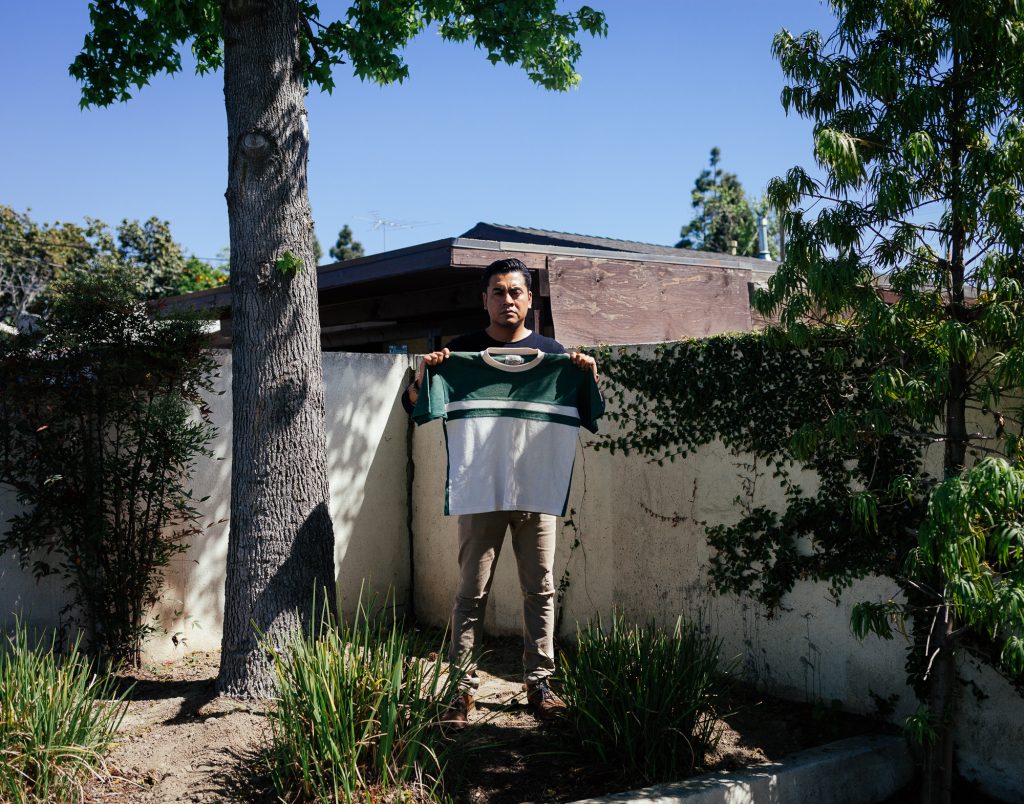
Trigger
When Armando crossed, he wore this green and white shirt, pants, tennis shoes, and an empty backpack. Looking at this shirt, which his mom has kept safe, brings back a lot of memories.
“Today, she pulled it out of the closet, and as soon as I saw it, I broke down. It brought all of those memories that I have been avoiding all of that pain and traumatic experiences. Looking at that shirt reminds me of all the injustices that me, my mom, and family went through to look for a better life. That shirt is a reminder of the life that I don’t want to go back to if I end up deported. I need to keep that shirt to remind me why I came to this country, so we can continue making a better future for others. Education is the only power we have to fight for a change, telling our stories so people can see our humanity. That shirt is painful to look at.” (audio below)
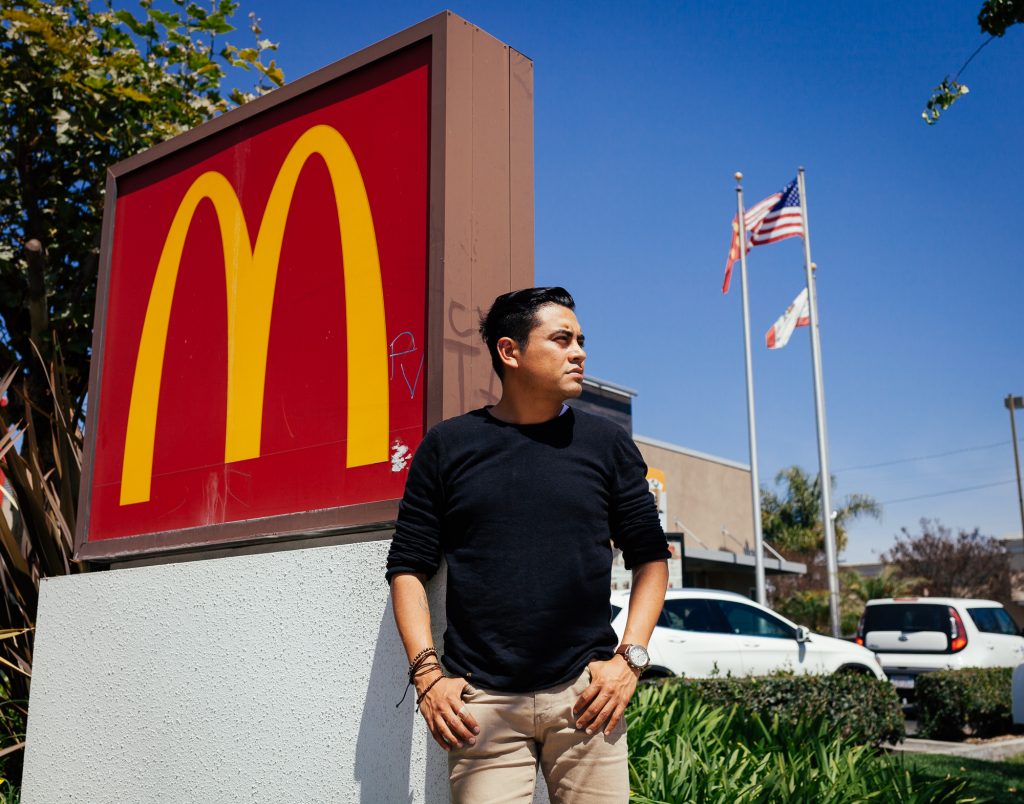
When he finally got across in 2000, his family met him at a McDonald’s where the coyote received money from his uncle. His mom was waiting there, crying. His family warned him before coming that in America, he should forget his goals of going to school and be ready to work.
Service Industry
“Learn English so you can get a better job and don’t tell anyone about your undocumented status. All of your goals, forget about them.”
Armando’s first job also happened to be at McDonald’s.
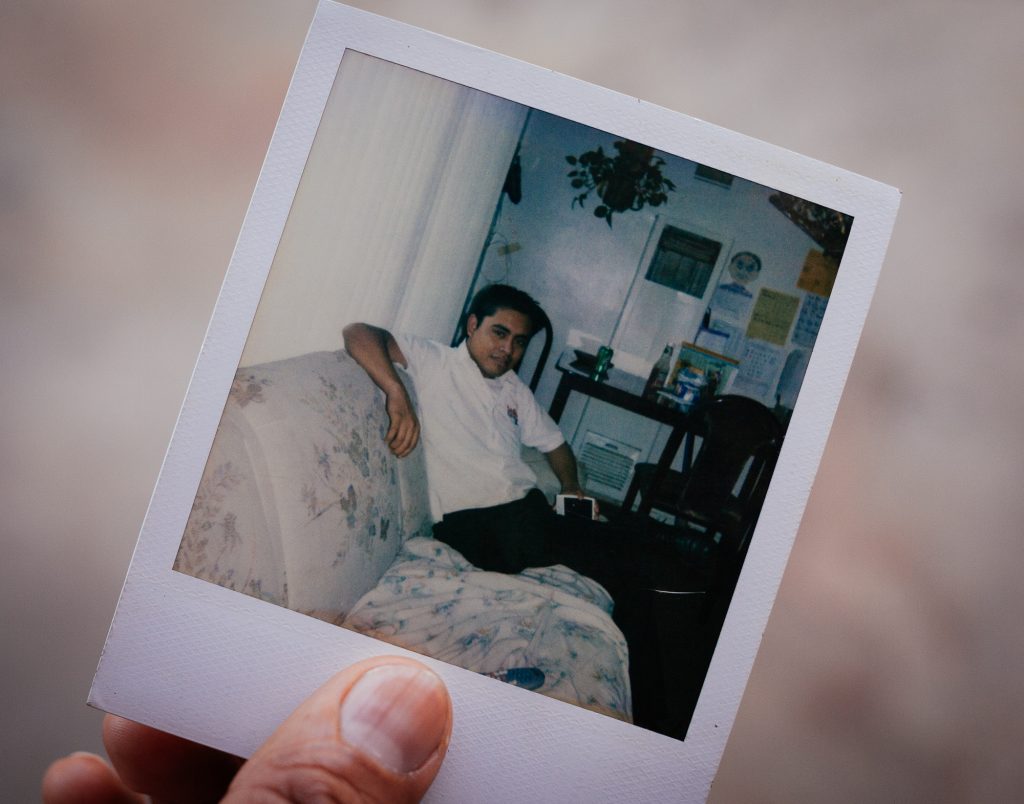
Since starting at McDonald’s, Armando has worked in around 20 restaurants. He began as a dishwasher, then was promoted to cook, then to the front of the house, then a server and bartender.
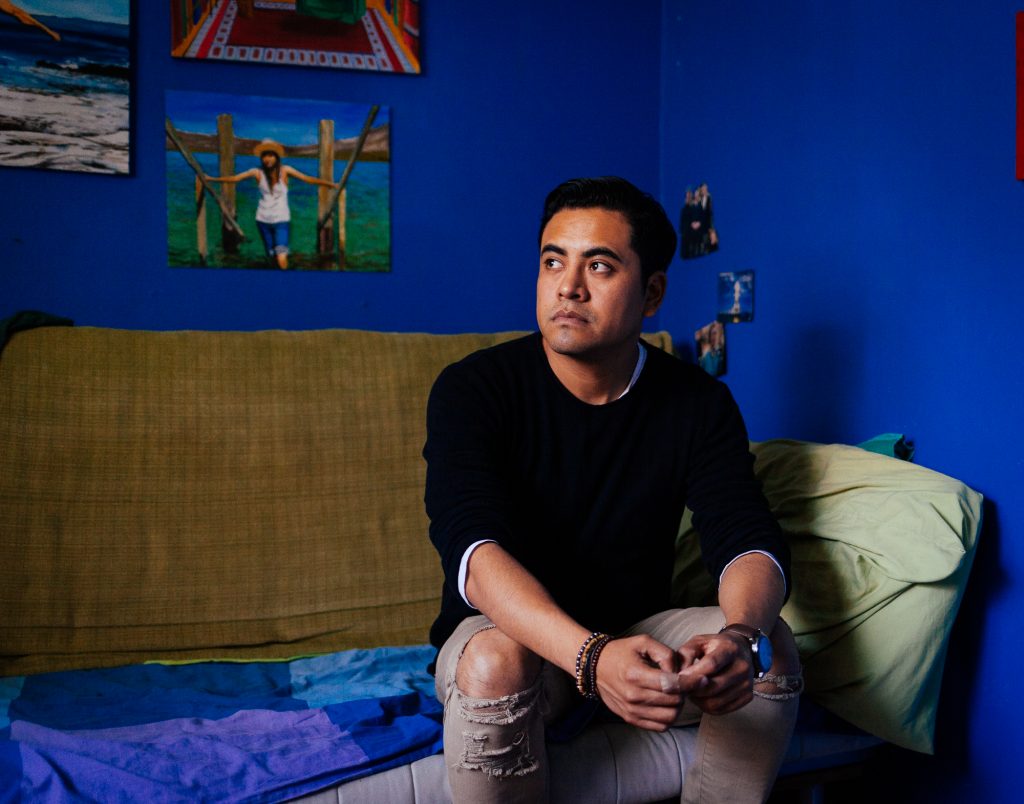
Undocumented
“Even in your social life, you don’t tell anyone. When people invite you out to a bar, you say you can’t go because you don’t have an ID, and you don’t want to use your Mexican ID. Now with my undocumented friends, we laugh about it. I spent ten years lying and trying to fit in.” (audio below)
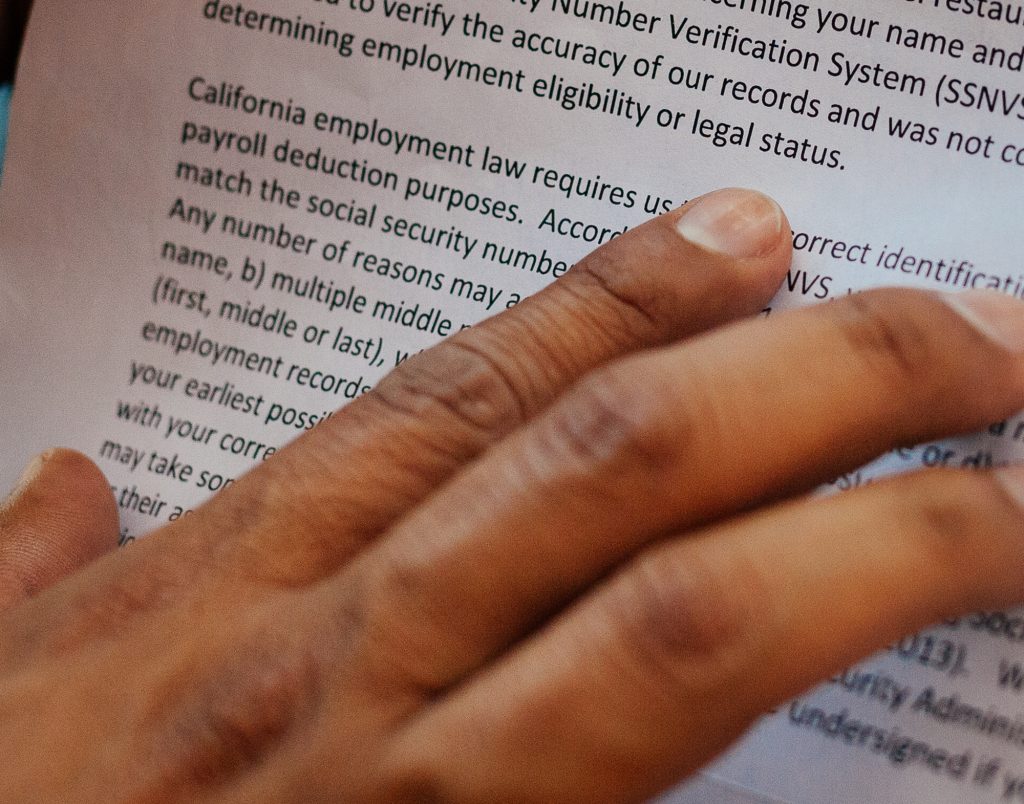
In 2011, the manager at the restaurant where he worked called him in, saying that his social security number didn’t match his name. Armando told his manager that his social security number was fake. Armando felt humiliated, embarrassed, and scared. He went home devastated and worried about how he was going to pay that month’s rent. Armando couldn’t tell his mom, and the next day Armando put on his uniform as if he was going to work but instead went to the movies. He did this for three days before his mom realized that something was up. In 2013 the same thing happened again at another job – and that was the last straw for him. Armando decided that he had to get more involved in the undocumented movement.
“That letter was the before and after for me to start speaking up and not be in hiding anymore.”
Unafraid
Armando will never forget watching the 2012 movement of undocumented youth on the streets yelling, “Undocumented! Unafraid”! This civil disobedience was inspiring, and then they announced DACA (Deferred Action for Childhood Arrivals). DACA meant that undocumented children who were brought to the US by their parents could get papers giving the right to remain, work, and study in the country.
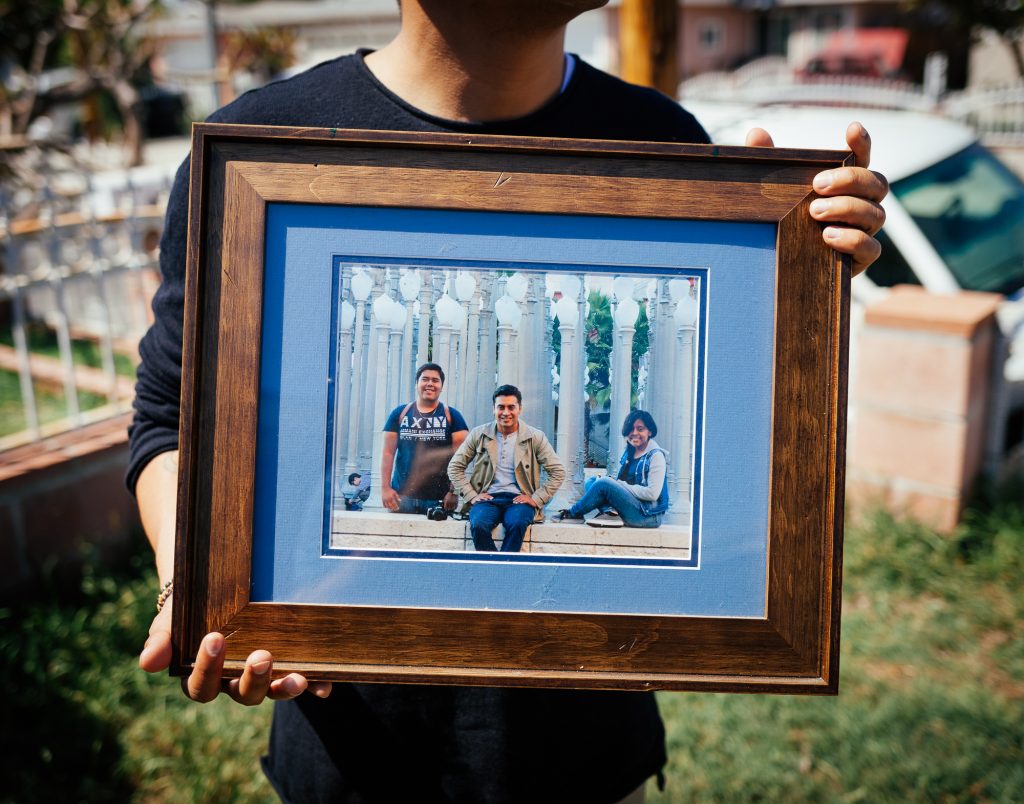
Armando didn’t qualify for DACA since he wasn’t in the country before the age of 16, but his brother and sister [see the photo above] did.

Hope
When friends visit, they always ask Armando why he keeps so many documents. He tells them how people in his situation hold on to hope that one day there will be an opportunity to fix their status. When that opportunity comes, Armando wants to be ready.
“People who are documented do not understand. Every piece of paper – we have got to keep.”
After he joined the movement, Armando quickly discovered undocumented people in California who were going to post-secondary school – it is possible. Armando enrolled in college. When the counselor asked him his major, he hesitated before saying “filmmaking.” He didn’t know how he would tell his family and when he did,
“I got silence. It was like they were laughing at me. ‘We are poor, and being a filmmaker is not possible for you.’”
Queer
Becoming an activist, exposed Armando to a new word – “queer.” For the first time in his life, he realized it wasn’t bad or wrong – it was just how he felt.
“I had been hiding my identity as a gay person – it added another layer – undocumented and gay. Hiding from society and your family is common- especially in the Latino community, where it is not okay to be gay.”
In the summer of 2015, Armando fell into a deep depression. His mother, a conservative Christian, told Armando how hard it was for her to accept him being gay. Armando wasn’t sure if his life was worth continuing. Two things key things happened in Armando’s life that helped him go on. He saw activists proclaiming that they were undocumented, unafraid, queer, and unashamed. Around that same time, a friend asked Armando if he had watched the web series Awkward Black Girl by Issa Rae. Armando checked it out, and it was the inspiration he needed to go on. He wanted to tell his story like she does and break down stereotypes.
“It brought me back to life. It’s amazing the power that a filmmaker can have on people. That changed my life, and I started embracing my identity and who I was.”
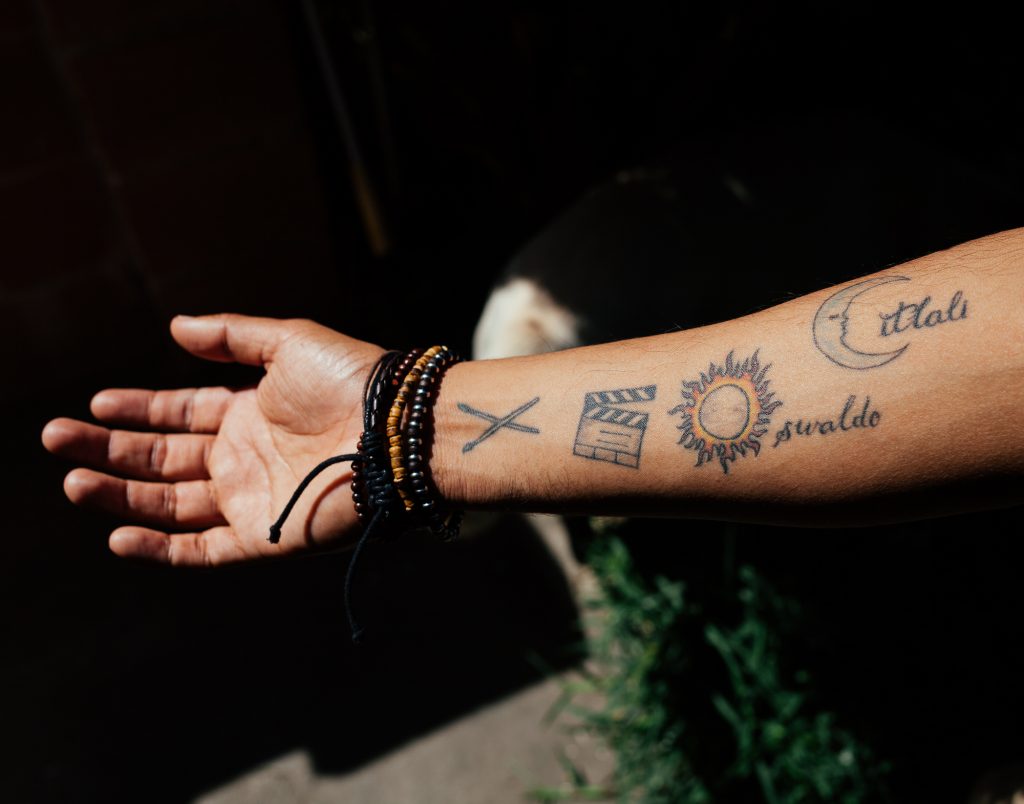
Undocumented Tales
Armando began writing about being undocumented – about having to lie to people about not having an ID or Social Security number or driver’s license. He wrote about being gay and what it was like having his mom ask him about girlfriends or his family asking when he was getting married. Out of this writing, he came up with the idea for the web series Undocumented Tales.
“Writing is very healing for me, and putting those stories on the screen is healing for others. Maybe we have obstacles, but we have to embrace what we have.”
He saw how most TV characters are white and straight, and the need for a series with people of color and people from the LGBTQ+ community.
“The media told me my whole life that I could not be the lead character.”
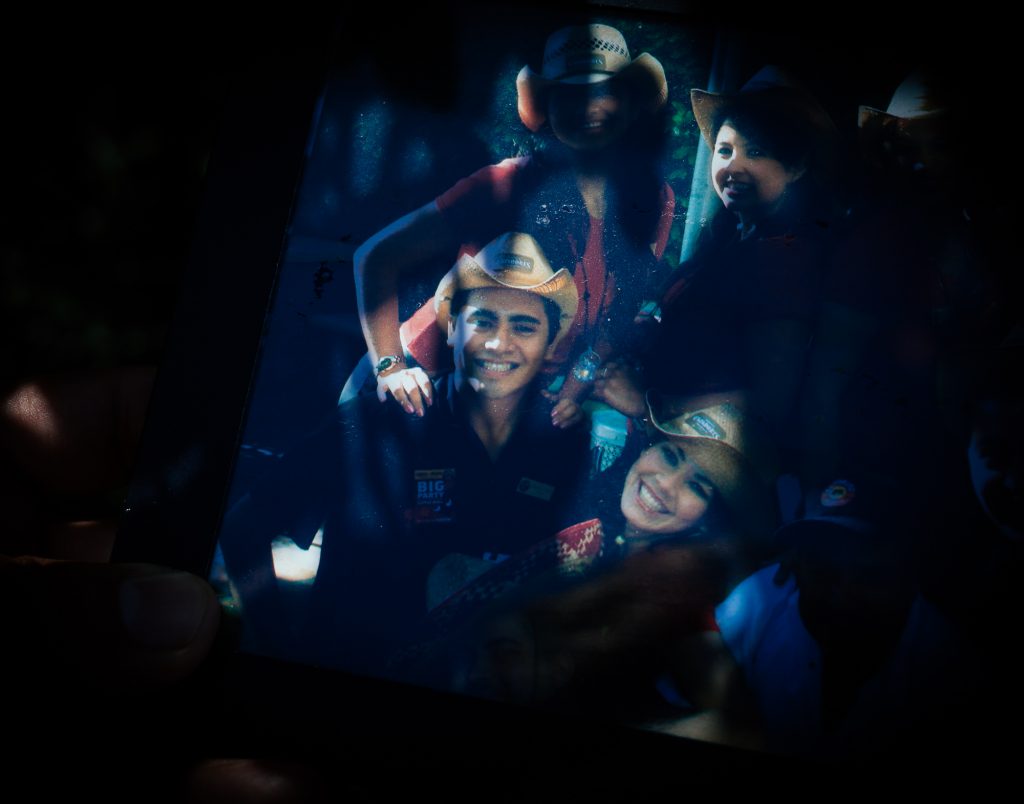
Armando created a lead character based on his story – undocumented, queer, poorly educated, and working as a busboy in a restaurant. He remembers the response after the premiere of the show and someone commenting, “That’s me”! People from his community felt represented. Armando’s web series was saying to other undocumented or queer people: “You are on the screen, and you matter.”
“I just want all the undocumented people to come to LA. We have privileges here. We have drivers’ licenses and identification cards and health care. It is the most friendly city for undocumented people, and I am aware of that. We have all the cultures here, and they make the city rich.”
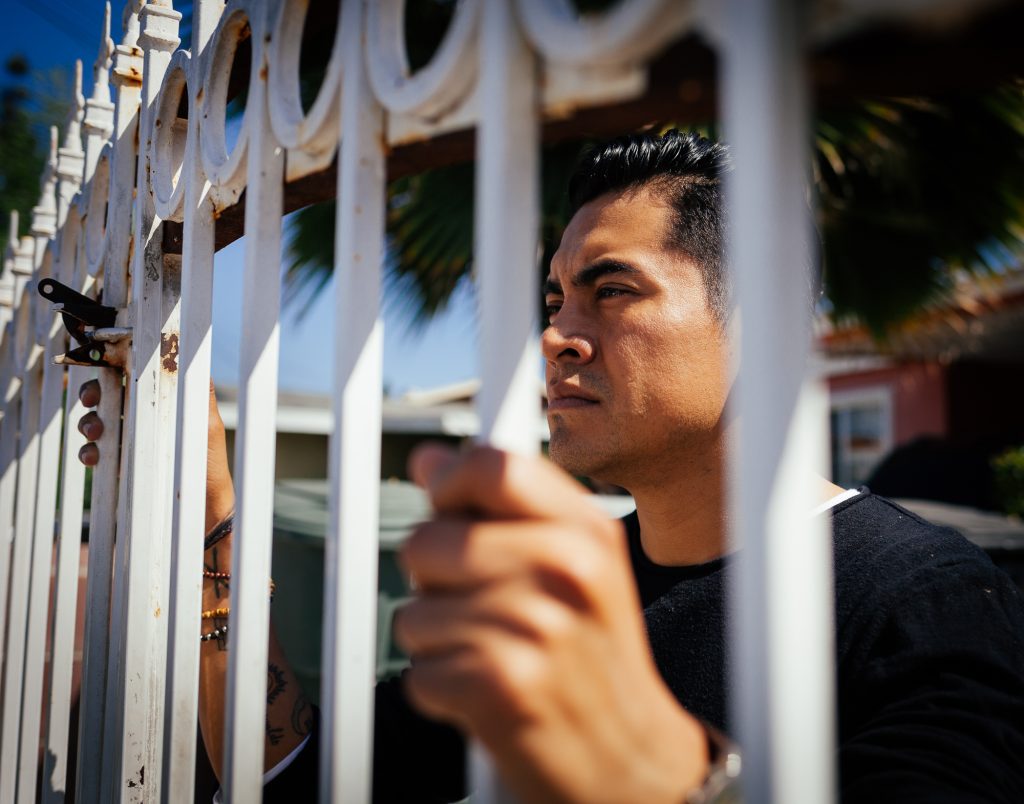
Battle on Two Fronts
Armando fights a battle on two fronts – homophobia from the Latino community, and racism from some white Americans. He is aware that he may never see the changes that he wants to happen. However, he is okay just making his small contribution so that that future generations will benefit.
“Hatred is growing in this country like a snowball and Trump is just pushing the ball. Hopefully, it doesn’t crash and instead it dissolves along the way.” (audio below)
Despite his struggles, and feeling like his community is continually marginalized, Armando tries to remain positive.
“They don’t see the humanity in us. That frustrates me. I’m just going to continue speaking up about my experiences. I’m not afraid anymore. I want to show that despite all the barriers – we continue on, and we are beautiful. Brown is beautiful.”
#FINDINGAMERICAN
To receive updates on the book release and exhibition of “Finding American: Stories of Immigration from all 50 States” please subscribe here. This project is a labor of love and passion. If you would like to support its continuation, it would be greatly appreciated!
© Photos and text by Colin Boyd Shafer | Edited by Janice May & Kate Kamo McHugh. Quotes edited for clarity and brevity.
